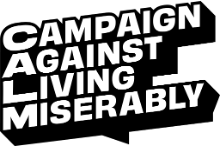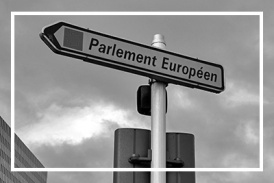MENTAL HEALTH AWARENESS WEEK: 1 in 3 18-24-Year-Olds in the UK Regularly Experiencing Loneliness

● A third of 18-24-year-olds are regularly experiencing loneliness according to a new YouGov poll from Campaign Against Living Miserably (CALM)
● The data reveals that over half (52%) of UK adults are facing some form of loneliness, with the figure rising to 7 in 10 (72%) for 18-24-year-olds
● CALM has released new online support resources on How to feel a little less alone, which includes guidance on coping with loneliness. Available at thecalmzone.net
● CALM Ambassadors Joe Marler and Shirley Ballas have teamed up with the charity to raise awareness of their CALM Clubs initiative supporting existing clubs across the UK with resources to support their members, as it’s revealed that members of a club or community are less likely to experience loneliness
● Case studies from UK-wide CALM Clubs members are available, representing the 275 clubs from across the England, Northern Ireland, Scotland and Wales covering activities including sport, music, arts, wellbeing, prison support services, education, employee support, armed forces and more
● CALM CEO Simon Gunning and Services Director Wendy Robinson are available for interview
1 in 3 (33%) 18-24-year-olds in the UK are experiencing loneliness on a regular basis according to new YouGov research commissioned by suicide prevention charity Campaign Against Living Miserably (CALM) in the lead up to Mental Health Awareness Week (12th - 18th May).
The data reveals that over half (52%) of UK adults are facing some form of loneliness2, with the figure rising to 7 in 10 (72%) for 18-24-year-olds, in addition to higher levels for women (57%), full-time students (74%) and people in both the LGBTQ+ (70%) and lower social grade (56%) communities.
As Mental Health Awareness Week 2025 focuses on the theme of community, the research examined the impact of being part of a supportive club, group or community, and found that the 39% of adults who do get to regularly engage with a club or community8 are less likely to experience loneliness on a regular basis.
63% of people who feel they belong to a supportive group, club or community reported that being part of a club gave them a sense of belonging, with 43% seeing an improvement in their mental health as a result. 1 in 4 (26%) people with a club or community to turn to were supported by the group in a time of need. Specifically for 18-24-year-olds, the group facing the highest levels of loneliness and social isolation, being involved in a club environment widened their circle of friends (55%) and improved their confidence (51%).
CALM CLUBS
CALM Clubs is a unique free-to-access service offered by the charity which provides resources to existing clubs, enabling them to create a supportive environment for their members. There are currently 275 CALM Clubs across England, Northern Ireland, Scotland and Wales encompassing a huge range of activities across sport, the arts, wellbeing, education, and employment services, from fitness to futsal, sub aqua to saxophonists, parkour to prison support, cold water immersion to coffee mornings.
Existing clubs can register as a CALM Club for free to access CALM’s tools and resources for their members.
Ambassadors Joe Marler and Shirley Ballas are joining CALM to help people find a community by championing their latest support resources and raising awareness of CALM Clubs, an initiative designed to unite existing clubs across the UK and provide them with the resources to support their members.
Joe Marler said: “Some of the loneliest times of my life have been on the rugby pitch surrounded by tens of thousands of people. A sense of belonging isn’t maths - it’s not about how many people you’re in a room with, it’s about connection and knowing there’s a group you can lean on, laugh with and sometimes cry with. Whether you’re in a club already and want to make sure you’re showing up for your members, or if you haven’t got a clue where to start, CALM, as always, have got your back.”
Shirley Ballas said: “Being part of the dance community has not only given me endless joy and opportunities, but also unending support. There is such beauty in connecting with a group of people over a shared passion. I wholeheartedly support the brilliant work CALM is doing to help people in taking their first steps to finding their own communities, as well as equipping those that already exist with potentially life-saving tools. We are facing a loneliness epidemic right now, and this might just be the answer. And I’ll be making it my personal mission to see the first dance group sign up to CALM Clubs this Mental Health Awareness Week!”
6 in 10 people (61%) either didn’t feel like or were not sure if they belonged to a club, group or community, 35% of which citing social anxiety as a key barrier. For 25-44-year-olds, social anxiety is an even larger barrier, being a key concern for almost half (45%) alongside a fear of rejection for over 1 in 4 young people aged 18-24 (26%).
HOW TO FEEL A LITTLE LESS ALONE
CALM’s Director of Services, Wendy Robinson, said: “CALM’s research shows that you aren’t alone in feeling lonely. When you’re feeling isolated, making that first step to find your community can feel like a mountain to climb. A sense of belonging starts with you, knowing that you’re not alone and there’s support out there to help you find that connection.”
CALM has released new online support resources on How to feel a little less alone, which includes guidance on coping with loneliness, including:
1. Get outdoors and move your body
● Connecting to your environment can make you feel part of something bigger
● Moving your body is a sure fire way to get out of your head
2. Stick on the TV or Radio
● Familiar programmes can help regulate how you’re feeling
● Podcasts or radio shows can help you feel part of a community
3. Make plans for the future
● It doesn’t have to be big. Having something to look forward to can make the difficult days easier
● Researching is a great way to occupy your brain
4. Try a micro connection
● A micro what? Doing small things to connect with others can be all it takes to feel a little less alone
● Try smiling at a stranger or saying hello to your taxi driver. Socialising doesn’t have to be big
Need help? Campaign Against Living Miserably (CALM) hosts a life-saving suicide prevention helpline and provides vital online mental health resources for anyone who needs them. Visit www.thecalmzone.net.
— ENDS —
NOTES TO EDITORS
All figures, unless otherwise stated, are from YouGov Plc. Total sample size was 2,059 adults. Fieldwork was undertaken between 28th - 31st March 2025. The survey was carried out online. The figures have been weighted and are representative of all UK adults (aged 18+).
*Made up of 9% “always” experiencing loneliness, and 24% “often” experiencing loneliness
About Campaign Against Living Miserably (CALM):
Campaign Against Living Miserably (CALM) is a suicide prevention charity fighting to reduce the devastating impact of suicide in the UK. They run a life-saving helpline for anyone affected by suicide or suicidal thoughts. It’s free, anonymous and open from 5 pm to midnight every day.
Their website has loads of tools and resources packed with practical, non-clinical advice to make talking and managing mental health easier.
CALM also run vital campaigns to increase awareness, smash stereotypes, and change the culture around mental health and suicide.
Contact
Elizabeth Charlesworth, Head of PR & Communications - Campaign Against Living Miserably (CALM)
elizabethcharlesworth@thecalmzone.net
press@thecalmzone.net
Elizabeth Charlesworth, Head of PR & Communications
Campaign Against Living Miserably (CALM)
elizabethcharlesworth|thecalmzone.net| |elizabethcharlesworth|thecalmzone.net
Legal Disclaimer:
EIN Presswire provides this news content "as is" without warranty of any kind. We do not accept any responsibility or liability for the accuracy, content, images, videos, licenses, completeness, legality, or reliability of the information contained in this article. If you have any complaints or copyright issues related to this article, kindly contact the author above.
Foil Laminates Market to Reach USD 13.6 Billion by 2035, Driven by Food & Beverage Demand | Future Market Insights, Inc.
As VCCs Gain Recognition as Environmental Commodities, BlueGrace Sets the Standard with Tokenized Carbon Assets
JAPAN SCIENCE AND TECHNOLOGY AGENCY (JST) AND ORCID PARTNER TO BENEFIT RESEARCHERS
Kalendarium
Więcej ważnych informacji
 Jedynka Newserii
Jedynka Newserii

 Jedynka Newserii
Jedynka Newserii

Edukacja

Coraz więcej Polaków widzi korzyści płynące z obecności w UE. Co ósmy wciąż jednak nie potrafi ich wskazać
Członkostwo w UE cieszy się wśród Europejczyków rekordowo wysokim poparciem – wynika z tegorocznego Eurobarometru. Korzyści dla swojego kraju dostrzega 74 proc. obywateli Unii – to odsetek najlepszy od początku badań w 1983 roku. A w Polsce jest on jeszcze wyższy. Doceniamy przede wszystkim wkład UE w bezpieczeństwo, nowe możliwości zawodowe i rozwój gospodarczy kraju. Po 21 latach naszej obecności w UE wciąż jednak potrzebna jest europejska edukacja.
Polityka
Zmiany w obowiązku magazynowania gazu mogą obniżyć ceny surowca. To pomoże się przygotować do sezonu zimowego

Elastyczność bez zagrożenia dla bezpieczeństwa energetycznego – tak nową propozycję przepisów dotyczących uzupełniania zapasów gazu przed sezonem zimowym określają jej inicjatorzy z Parlamentu Europejskiego. Europosłowie proponują nieznaczne zmniejszenie wymaganego poziomu zapełnienia magazynów i rozciągnięcie w czasie terminu, w którym trzeba spełnić ten obowiązek. Jak podkreśla Borys Budka, ma to zapobiec spekulacjom na rynku gazu i tym samym pomóc obniżyć ceny surowca.
Konsument
Możliwość zakupu online może zachęcić kolejne grupy Polaków do ubezpieczeń zdrowotnych. Dziś korzysta z nich już prawie 5,5 mln osób

Polska jest jednym z liderów Europy w obszarze cyfryzacji sektora usług medycznych. Świadczą o tym m.in. popularność elektronicznych narzędzi zapewniających dostęp do danych zdrowotnych, e-recept czy wirtualna diagnostyka. Polacy są też otwarci na innowacje w zakresie ubezpieczeń zdrowotnych, z których korzysta już blisko 5,5 mln osób. Za pomocą nowej cyfrowej platformy Medicover chce zachęcić klientów do samodzielnej konfiguracji i zakupu polis online.
Partner serwisu
Szkolenia

Akademia Newserii
Akademia Newserii to projekt, w ramach którego najlepsi polscy dziennikarze biznesowi, giełdowi oraz lifestylowi, a także szkoleniowcy z wieloletnim doświadczeniem dzielą się swoją wiedzą nt. pracy z mediami.






.gif)

 |
| |
| |
|